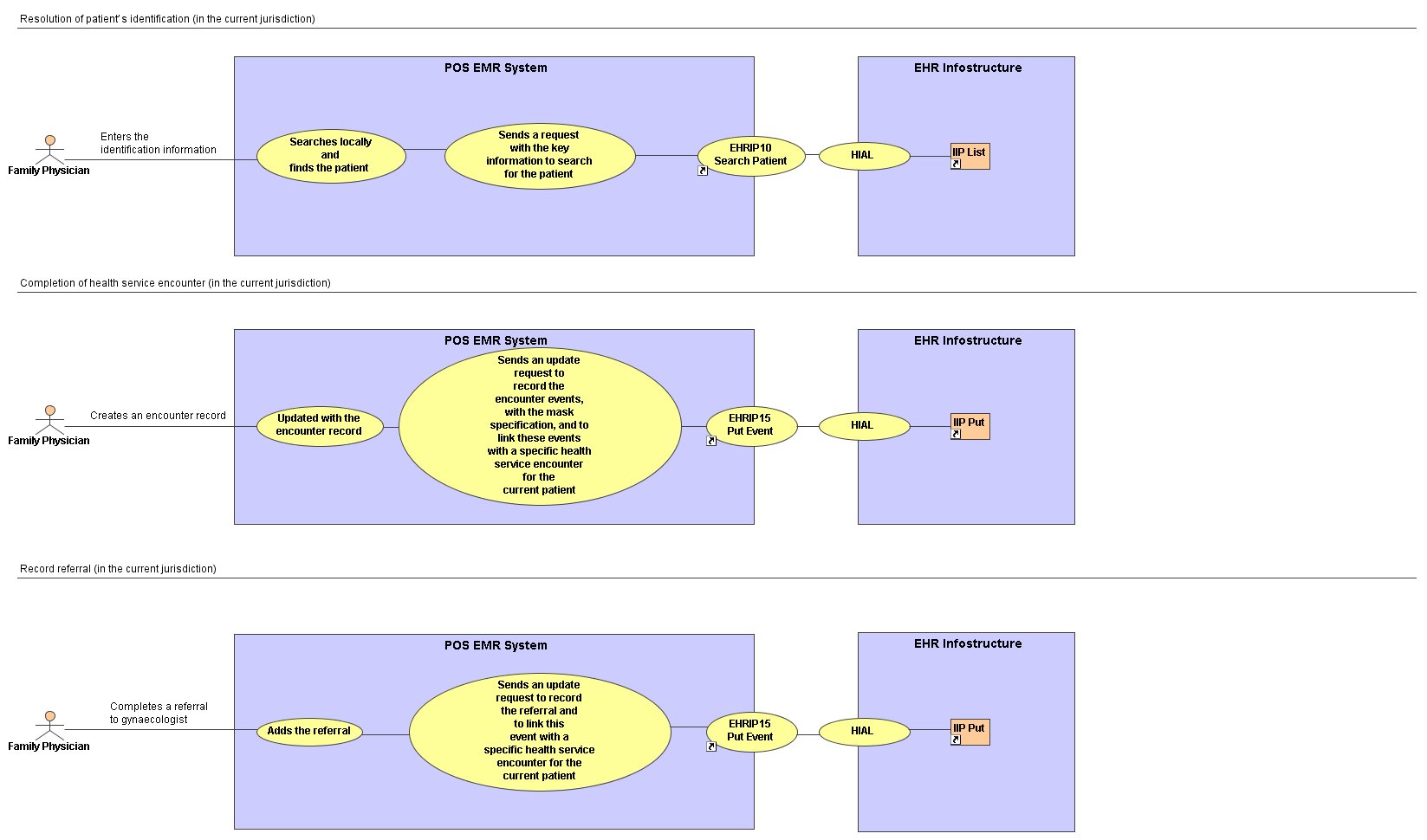
|
Actors
Assumptions
|
Workflow Event Step |
POS Action |
EHRi System Action |
EHR IP reference |
|
Resolution of patient’s identification (in the current jurisdiction) |
|||
|
The physician enters the patient’s identification information in the clinic’s EMR system. |
The POS EMR system searches locally and finds the patient. The POS EMR system sends, to the EHRi system, a request with the key information (ex. name, birth date, provincial health care number) (and to obtain a EHRi Transaction Client ID). |
The EHRi system searches and finds for the client in the current jurisdiction, with the provided key information (ex. name, birth date, provincial health care number). |
EHRIP10 Search Patient |
|
The EHRi System Client Registry returns, to POS system, the corresponding patient record (with a EHRi Transaction Client ID). |
|||
|
The POS EMR system displays the corresponding record of current patient. |
|||
|
Completion of health service encounter (in the current jurisdiction) |
|||
|
The physician creates, in the clinic’s EMR system, an encounter record with this information: - History, - Past medical history, - Allergies, - Medications, - Physical exam, - Lab results, - Provisional diagnosis, - Management plan. |
The POS EMR system is updated with the encounter record. The POS EMR system sends, to the EHRi system, an update request to record the encounter events, with the mask specification, and to link these events with a specific health service encounter for the current patient (for the EHRi Transaction Client ID). |
The EHRi system adds the new encounter events, with a mask specification, and links them with the specific health service encounter for the current patient (for the EHRi Transaction Client ID). |
EHRIP15 Put Event |
|
The EHRi system returns, to POS system, an acknowledgment that the update request is completed. |
|||
|
The POS EMR system displays an acknowledgment about the completed update request. |
|||
|
Record referral (in the current jurisdiction) |
|||
|
The physician completes, in the clinic’s EMR system, a referral to gynaecologist – the referral contains: - Patient name, - Patient date of birth, - Patient phone number, - Patient healthcare number, - History, - Relevant past medical and gynaecologic history, - Pap result, - Request, - Doctor name, - Doctor phone number, - Doctor ID number. |
The POS EMR system adds the referral. The POS EMR system sends, to the EHRi system, an update request to record the referral and to link this event with a specific health service encounter for the current patient (for the EHRi Transaction Client ID). |
The EHRisystemadds the new referral event and links it with the specific health service encounter for the current patient (for the EHRi Transaction Client ID). |
EHRIP15 Put Event |
|
The EHRi system returns, to POS system, an acknowledgment that the update request is completed. |
|||
|
The POS EMR system displays an acknowledgment about the completed update request. |
|||
| General Info | |
|---|---|
| Name | Health Service Event #3 – Complete health service encounter record Event Diagram |
| Type | Use Case Diagram |